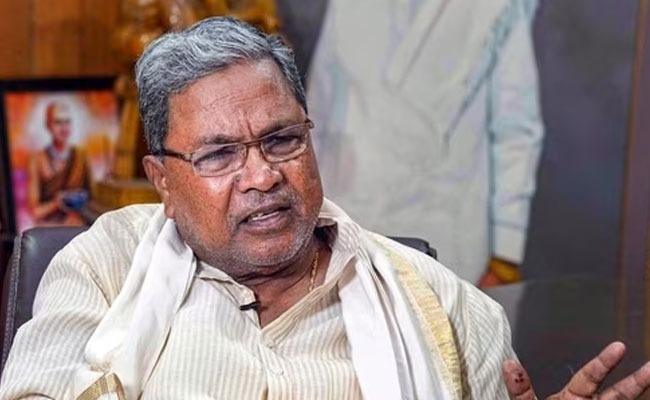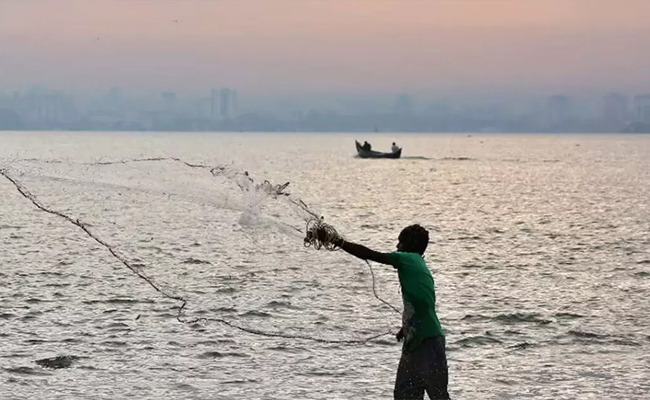Mysuru(PTI): With pressure mounting on his government to make public the state's socio-economic and educational census, popularly known as the 'caste census', Karnataka Chief Minister Siddaramaiah on Saturday said a decision will be taken once he receives the report next month.
The CM's statement comes days after the Bihar government released data of its caste survey.
Earlier this week, Karnataka State Commission for Backward Classes chairperson K Jayaprakash had said he would submit the caste census report to the state government in November.
"When the Kantharaj headed commission gave the report, the then Chief Minister H D Kumaraswamy did not take it, now there is a different chairman for the commission. I have asked him to submit the report filed by Kantharaj as it is. He has said that the report will be given in November, let's see," Siddaramaiah told reporters here.
Asked about the demand for separate categorisation of the most backward classes, as it is done in the other state, the CM said, "the government cannot do it on its own, a report should be there for it... Once the backward classes commission report comes, we will think over it."
The then Siddaramaiah-led Congress government in 2015 had commissioned the social-economic and educational survey, at an estimated cost of Rs 170 crore in the state, the findings of which have not been made public yet.
The state Backward Classes Commission under its then chairperson H Kantharaj was tasked with preparing a caste census report.
According to some analysts, successive governments have been shying away from releasing it as the findings of the survey are allegedly contrary to the "traditional perception" of the numerical strength of various castes in Karnataka, especially the dominant Lingayats and Vokkaligas, making it a political hot potato.
Political parties in the state have indulged in blame game for not accepting the survey and not making it public.
Officials have also cited the then member-secretary of the State Commission for Backward Classes not signing the final report, as the "technical hurdle" that has hindered the release of the report.
They said the caste census report is currently with the Karnataka State Commission for Backward Classes, and once it submits it, the cabinet would take a call.
Responding to a question on the alleged statement by Prime Minister Narendra Modi accusing the Congress and its allies of trying to divide society with caste census, Siddaramaiah said, "No (it will not divide the society), definitely not....Facts are different and what he is saying is different."
For poverty alleviation programmes and to build an equal society, it is required to know about social, economic and educational conditions of various communities, he said, "Our society is by and large with a caste system. To get rid of inequalities and to bring everyone to the mainstream, we need to have statistics, so socio economic and caste survey is required."
The Chief Minister also reiterated that the state government will not give any new licenses to open liquor shops.
He was responding to a query about Deputy Chief Minister D K Shivakumar batting for a policy change, saying nobody can stop people from consuming liquor, following his (Siddaramaiah) statement that the government will not open new liquor outlets.
"He (Shivakumar) has said that drinking cannot be stopped. Has he said that the government will permit new liquor shops? .... He has expressed his opinion, we will take a decision in the cabinet.
In my view, there is no need to give new licenses.... public opinion is also important. According to me there is no such proposal as of now, we are not going to give new licenses to liquor shops," he added.
Let the Truth be known. If you read VB and like VB, please be a VB Supporter and Help us deliver the Truth to one and all.
Bengaluru: Artificial Intelligence is slowly changing the way music and creativity are produced in the Kannada film industry, raising concerns among musicians, singers and technicians, The New Indian Express reported on Sunday.
Music composer, actor and director V Manohar reportedly said, AI is being used to write lyrics, especially in low-budget movies. Once lyrics are generated, AI can suggest thousands of tunes. It even asks whether the voice should be male or female. With one click, a complete song is ready.
“If this continues, singers and musicians will have less or no work in the coming days. But it may not succeed either. A few years ago, dubbing was allowed and people could watch movies in any language they preferred. But not many took to it as they wanted to watch a movie in the original,” TNIE quoted him as saying.
According to the report, Filmmaker Avinash U Shetty, a National Award winner, said resistance to new technology is not new. Those who resisted shifting from analogue to digital films years ago have now embraced it. The industry is now using only 10% of the AI potential. If it is scaled up, it can do unimaginable things. What we consider bad now, may not be after five years.
Highlighting the cost advantage, Sangamesh, an independent creator reportedly said, he made a three-minute video using AI for just Rs 4,500. Earlier, the same work would have cost nearly Rs 15 lakh. I finished the entire project in three days. The only expense was the AI software subscription, he said.
These days, it has become difficult to differentiate between the real and AI. AI is creating artistes. Scenes like war, big fights and dance can be shot with a lesser number of artistes. Then with the aid of visual effects and AI, you can achieve what you have in mind, he said.
Actor-director D P Raghuram felt that while AI has made an impact on music, it lacks emotional depth. Cinema earlier involved hard work and strong emotional connections. AI can help improve our work, but creativity should remain human, he reportedly said.
As per the report, earlier, Kannada cinema employed hundreds of junior artistes, who not only earned wages but also shared meals on sets and formed lasting bonds with stars like Dr Rajkumar, Vishnuvardhan and Ambareesh. Today, filmmakers fear that increasing dependence on AI could reduce such human connections, turning creativity into just another automated process.





